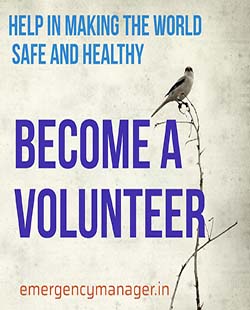

 Deepak Chopra, MD, FACP, FRCP
Deepak Chopra, MD, FACP, FRCP

One of the most basic assumptions everyone makes in life is about free will. Each day brings numerous chances to choose A or B, this or that, according to your own inclination. Without freedom of choice, human existence is unthinkable. But there’s a deeper current of uncertainty that is being ignored.
Behind the appearance of free will, lots of things are predetermined. The autonomic nervous system regulates all the major processes taking place in your body. Your brain operates by fixed laws of physics and chemistry. Your genes are fixed at birth and cannot be changed. We coast along mostly ignoring these things, but that’s a mistake if you want to be as free as you assume you are.
You are sacrificing your free will whenever you do the following things:
· Act out of habit
· Repeat second-hand opinions
· Hold rigid beliefs
· Repeat the past
· Obey old conditioning
· Fall prey to bad memories and fears
· Keep to the same old routine
· Not thinking for yourself
· Be ruled by religious or political dogmas
That’s a long and discouraging list, but each item belongs to the same category: living unconsciously. The more you indulge in unconscious behavior, the more constricted your awareness becomes. This fact, more than difference in IQ, talent, personality, status, and money, determines how your life will turn out tomorrow. Most people, unfortunately, experience tomorrow as a repetition of today; therefore, they have surrendered their free will to the past, which keeps repeating itself over and over.
Notice that we’re not talking about the big philosophical issue of free will versus determinism. Centuries of metaphysical speculation haven’t settled such a cosmic question. The practicality of free will is what matters to each person, setting metaphysics aside. But this is a false distinction. Practical life is metaphysics at the same time.
The ”meta” in metaphysics means “beyond” in Greek, and the ancient philosophers of Athens, especially Plato and Socrates, considered the realm beyond the physical more important than the physical. This is also the view held by devoutly religious people, who view God or the gods as rulers of a higher reality. They meted out human fate.
In a modern secular world, as God or the gods have dwindled, fate remains in different guises. If you are a scientist, free will is subject to genes, physics, the laws of nature, random interactions, etc., all acting mechanically as impersonal fate. If you are a neuroscientist, you are almost certain to equate brain and mind, which basically makes us little more than brain puppets.
Of course, no one seriously leads their life based on such assumptions. If we are marionettes, the strings that pull us are invisible; therefore, they might as well not exist. The same is true of Karma, which acts invisibly from behind the scenes. Typically, people refer to karma when something goes wrong or life delivers an unpleasant surprise.
I’ve painted a confusing picture but a realistic one. We all treat free will as a given in the face of many reasons to believe in determinism. But there is a path to clarity. A crucial word needs to be eliminated from the discussion: versus. We casually think of a setup where it is free will versus determinism. But there is no versus, not really. Free will and determinism coexist. They are not poles of a duality; they are not either/or.
This should be obvious now, given all the evidence that some things in life are determined while others aren’t. Trying to figure out which is which is futile, however. Human behavior exists in a fog, and the important thing is to dissipate the fog, not stumble forward as best we can, which is what everyone does.
The alternative to “versus” is radical. Erase dual thinking. Ultimately, living in a scheme where everything has an opposite—good versus evil, light versus dark, desirable versus undesirable, even pleasure versus pain—is mind-made. In a debate where one political party opposes the other, both are trapped in the play of opposites. Of course, practical affairs demand answers, and there are good and bad ones—no one denies this.
But perhaps finding answers will proceed better without dual thinking. We stubbornly cling to political fighting even though everyone knows that agreement and cooperation are much better. Equality of gender and race is better than racism and sexism, but those failings stubbornly persist. The trick is to get away from duality altogether; only then can harmony, unity, consistency, and clarity rule in place of confusion and conflict.
Escaping the perpetual play of opposites lies behind the entire tradition of Eastern spirituality, yet it is unfortunate that the vague connotations of the word “spiritual” must be involved. Vedanta, Yoga, and Buddhism are entirely about consciousness. Even the phrase “higher consciousness” is misleading. It is better to think of consciousness expanding, becoming clear, waking up, and overcoming the unconscious forces that dictate so much of our lives.
Free will becomes real when you take steps to undo your unconscious behavior. Such a program is much simpler than anyone generally thinks. The only step needed is “stop, pause, and hang loose.” You do this whenever you notice that you are doing anything like the following:
· Acting certain
· Repeating yourself
· Ignoring other opinions
· Getting into the same old arguments
· Resisting
· Indulging in ego
· Making the rules for another adult
· Insisting on some dogmatic position
· Treating someone else as inferior
To these, we can add all the items on the previous list of ways we sacrifice free will, such as uttering second-hand opinions and not thinking for ourselves.
It might seem, alarmingly, as if every minute of the day will be interrupted by “stop, pause, and hang loose,” but no one is being asked to constantly scrutinize every word and act. It is enough to simply notice when you happen to notice. This provides an opportunity to stop a behavior that isn’t working or creates a negative atmosphere. The “hang loose” part is important. When you relax and let go (to the extent that you can), hanging loose allows a fresh response to replace an automatic reflex. At the very least being quiet subdues tension, and if you still notice tension in the air, you can give yourself a time-out.
I hope I’ve made at least one point. We all sacrifice our free will needlessly. This is necessary because consciousness offers an escape route, which should be kept in mind always.
*******
DEEPAK CHOPRA MD, FACP, FRCP, founder of The Chopra Foundation, a non-profit entity for research on well-being and humanitarianism, and Chopra Global, a whole health company at the intersection of science and spirituality, is a world-renowned pioneer in integrative medicine and personal transformation. Chopra is a Clinical Professor of Family Medicine and Public Health at the University of California, San Diego, and serves as a senior scientist with Gallup Organization. He is the author of over 90 books translated into over forty-three languages, including numerous New York Times bestsellers. Chopra has been at the forefront of the meditation revolution for the last thirty years. He is the author of the forthcoming book, Digital Dharma: How to Use AI to Raise Your Spiritual Intelligence and Personal Well-Being. TIME magazine has described Dr. Chopra as “one of the top 100 heroes and icons of the century.” www.deepakchopra.com